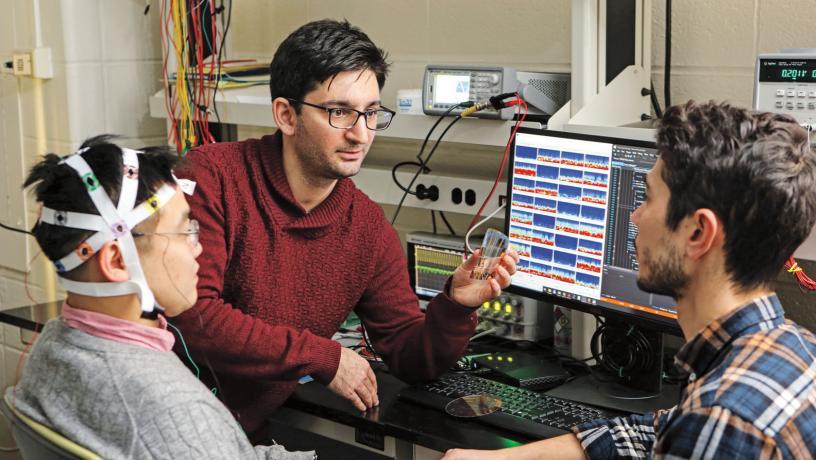Mining Neural Data to Heal Epilepsy Patients

Columbia researchers have developed a noninvasive device that can connect with the brain to help treat epilepsy and other neurological disorders. NeuroGrids are biocompatible, polymer electrodes that gather neural data previously difficult or impossible to get.
The polymer in NeuroGrids conducts both ions and electrons. That mix is ideal for brain-machine interaction because ions are the body's main mode of communication—while electrons are that of electronics. Data, technology, and medicine can talk to each other better.
While electrode arrays currently used in clinical practice are often too large and rigid, NeuroGrids can be extremely small, the same scale as a neuron. Such a tiny size allows researchers to capture more precise neural activity data. That precision is especially important for patients with drug-resistant forms of epilepsy. Surgery is often their best chance to be rid of seizures. But doctors need neural data to localize pathological brain activity as accurately as possible for a successful surgery.
NeuroGrids may be used as implantable systems that stimulate the brain—with potential to manipulate neural networks and treat other disorders like depression. "Our research spans from the physical understanding of materials, to investigating mechanisms of brain function, to designing next-generation bioelectronic devices for precision medicine," said Dion Khodagholy, Columbia professor of electrical engineering whose lab designed NeuroGrids. Learn more.
Make Your Commitment Today




